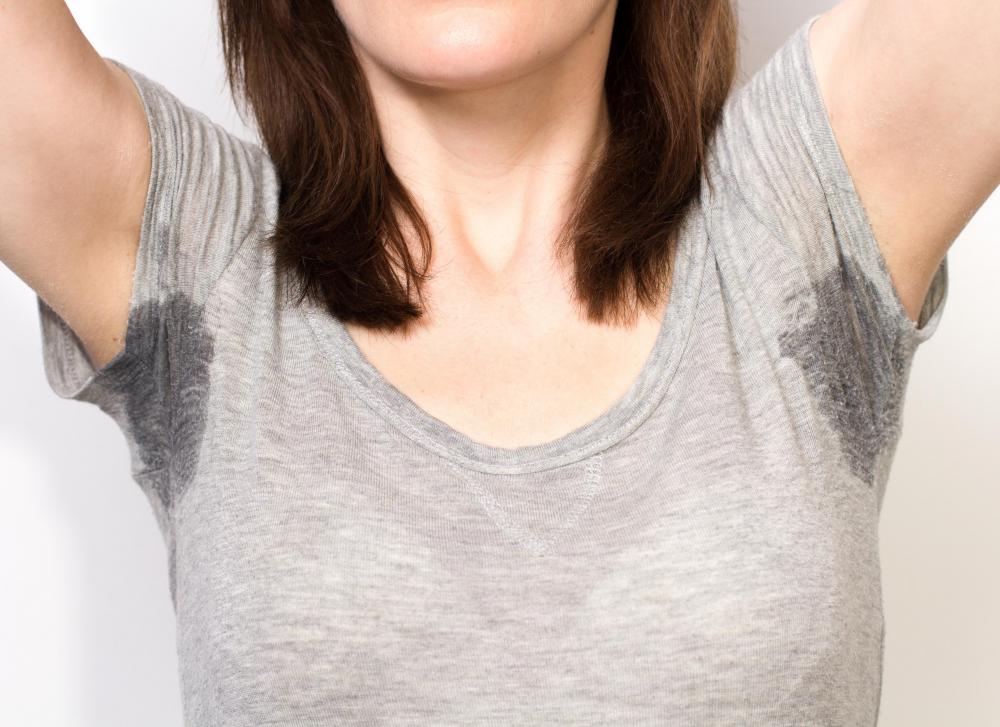At TheHealthBoard, we're committed to delivering accurate, trustworthy information. Our expert-authored content is rigorously fact-checked and sourced from credible authorities. Discover how we uphold the highest standards in providing you with reliable knowledge.
What are the Most Common Causes of Night Sweats?
Some common causes of night sweats include hormone imbalances, infections, neurological disorders, and medications. If people develop heavy sweating at night abruptly with no prior history of this problem or no conditions known to be causes of night sweats, they should seek medical evaluation, as this is sometimes an early symptom of disease. Treatment options vary, depending on the underlying cause, and in some cases no treatment may be available.
Some patients have what is known as idiopathic hyperhydrosis, meaning they sweat a lot for no apparent medical reason. These patients can experience heavy sweating at night even in a cool bedroom with appropriately layered bedding. Treatment options can include medications, as well as surgery, in cases where excessive sweating becomes a serious personal hardship or lifestyle obstacle.

Hormone imbalances, most commonly those associated with menopause, are a very common culprit. Neurological conditions are among the causes of night sweats, as a patient may have poor thermoregulation due to peripheral nerve damage, or could experience other problems leading to increased sweating. Infections, with HIV being a common cause, as is tuberculosis, are another reason for people to sweat a lot at night as their bodies fight the infection. Inflammation associated with cancer, especially lymphomas, is another of the potential causes of night sweats.

Diabetic patients sometimes notice night sweats when they have episodes of low blood sugar and hypoglycemia in otherwise healthy patients or people with other conditions can also cause sweating. In fact, sweating is a warning sign people are sometimes advised to watch for while exercising if they have low blood sugar concerns, as heavy sweating is often the first warning sign of a drop in blood glucose. People with diabetes who notice they are sweating a lot at night may need to adjust their treatment regimen to keep their blood sugar at a safer level, as hypoglycemia is the mostly likely among the causes of night sweats to be causing their problem.

When a patient goes to the doctor for the treatment of night sweats, some diagnostic testing may be recommended and a patient interview will be conducted. In the interview, the doctor gathers information about the patient's overall health and looks for specific warning signs of medical problems that could cause sweating. Some of the questions asked may not seem to directly pertain to the sweating issue, but they are still important, and should be answered accurately. If patients do not know the answer, saying “I don't know” is perfectly acceptable.
AS FEATURED ON:
AS FEATURED ON:

















Discussion Comments
Panic attacks can also cause night sweats, as I know firsthand. They really stink. I've had night time panic attacks, woke up in a "flop sweat" and had to get up and change my clothes. It's awful, because then, it takes so long to get calmed down enough to sleep that sometimes it's time to get up in the morning before that happens. Bummer.
Also, the diabetic needs to take any evening medication at least three or four hours before bedtime, so it doesn't cause the levels to drop in the middle of the night.
Post your comments